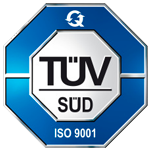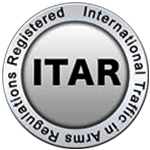How to Select the Best Foundation Anchor Bolt for Your Construction Project Based on Industry Standards
When embarking on a construction project, the selection of the best foundation anchor bolt is crucial to ensuring the structural integrity and longevity of the build. A recent industry report highlights that improper anchoring can lead to catastrophic failures, underscoring the importance of adhering to established standards. According to the American Concrete Institute, approximately 30%of structural failures are attributed to inadequate anchoring methods and materials. Therefore, it is imperative for engineers and project managers to understand the varying types of Foundation Anchor Bolts available and to select those that meet specific load requirements and environmental considerations. This guide will provide insights into the various factors influencing the selection of foundation anchor bolts while adhering to industry standards, ensuring that your construction project meets bothsafety and performance benchmarks.
Understanding the Importance of Foundation Anchor Bolts in Construction Projects
Foundation anchor bolts play a critical role in ensuring the structural integrity and safety of construction projects. As the recent framing industry trends highlight, with an increasing demand for commercial and multifamily constructions, the importance of properly anchoring structures cannot be overstated. Improper anchoring can lead to catastrophic failures, as evidenced by the alarming rates of homes sliding off their pier-and-beam foundations due to inadequate anchoring techniques. This underscores the need for meticulous selection and installation of foundation anchor bolts to adhere to industry standards.
Furthermore, advancements in construction methods, such as the mechanical splicing of anchor bolt cages, facilitate safe installations even under challenging conditions. This is particularly relevant in projects involving live-line conditions, where safety and compliance with best practices are paramount. As construction continues to evolve, understanding the importance of foundation anchor bolts will help in maintaining safety and sustainability in our built environments, confirming that even foundational elements require careful consideration to withstand the pressures of shifting soil and other environmental factors.
Key Industry Standards for Foundation Anchor Bolt Selection
When selecting foundation anchor bolts for your construction project, it is crucial to consider key industry standards that ensure the safety and reliability of the structure. The American Institute of Steel Construction (AISC) and the American Concrete Institute (ACI) offer guidelines that help engineers and builders choose the appropriate anchor bolts to match their specific application. These standards outline factors such as bolt dimensions, strength requirements, and corrosion resistance, which are critical in environments where durability is a priority.
Additionally, understanding the role of various certifications can significantly impact the selection process. For instance, the International Organization for Standardization (ISO) provides benchmarks for manufacturing processes and materials that ensure consistency and quality. Projects needing compliance with these standards will benefit from selecting bolts that meet ISO specifications, thus minimizing risks associated with subpar materials. By adhering to these established norms, contractors can enhance the performance and longevity of their construction projects while ensuring the safety of all stakeholders involved.
Factors to Consider When Choosing Foundation Anchor Bolts: Load Capacity and Material
When selecting foundation anchor bolts for your construction project, understanding load capacity and material composition is crucial. The load capacity of anchor bolts determines their ability to sustain various forces and loads that the structure will encounter over time. It is essential to calculate the expected load accurately, considering both static and dynamic forces, to ensure that the chosen bolts will meet safety and performance standards. Factors such as the type of structure, environmental stressors, and the weight of the materials being anchored all play a significant role in determining the required load capacity.
In addition to load capacity, the material of the anchor bolts influences their performance and longevity. Common materials include carbon steel, stainless steel, and structural grade steel, each offering different benefits. For instance, stainless steel provides excellent corrosion resistance, making it ideal for coastal or humid environments, while carbon steel might be preferred for its economic advantages in less corrosive settings. Evaluating the environmental conditions and specific requirements of your project will help you select the appropriate material, ensuring durability and reliability of the foundation anchor bolts throughout the lifespan of the structure.
How to Select the Best Foundation Anchor Bolt for Your Construction Project Based on Industry Standards
| Anchor Bolt Type | Load Capacity (kN) | Material | Corrosion Resistance |
|---|---|---|---|
| Epoxy-Coated Bolt | 50 | Steel | High |
| Galvanized Bolt | 40 | Carbon Steel | Medium |
| Stainless Steel Bolt | 60 | Stainless Steel | Very High |
| High-Strength Bolt | 80 | Alloy Steel | Medium |
| Carbon Steel Bolt | 30 | Carbon Steel | Low |
Common Types of Foundation Anchor Bolts and Their Applications in Construction
When selecting the best foundation anchor bolt for your construction project, understanding the common types and their applications is crucial. Among the various types of foundation anchor bolts, traditional J- and T-shaped bolts are frequently used for machines subjected to impact loads, offering reliable performance because of their fixed reinforcement in concrete foundations. These types are particularly beneficial in environments where mechanics stability is paramount.
Another significant type is the chemical-bonded anchor bolt, which provides superior holding power compared to traditional bolts. These bolts are suitable for use in settings where enhanced bond strength is required, especially in cases involving older concrete interfaces. Conducting thorough bond strength tests will ensure that the chosen bolt type can safely support the intended load without compromising structural integrity.
Tip: Always consider the environmental conditions, such as seismic and wind load requirements, when selecting anchor bolts. Adhering to established design codes will enhance the resilience of your structures, making them more adaptable to extreme weather events like tornadoes or hurricanes. Additionally, involving structural engineers early in the decision-making process can lead to more informed choices regarding anchor bolt selection.
Best Practices for Compliance with AISC and ASTM Standards in Anchor Bolt Installation
Selecting the best foundation anchor bolt for your construction project involves meticulous consideration of industry standards, particularly those set by AISC and ASTM. Ensuring compliance with these standards not only enhances the structural integrity of your project but also promotes safety and efficiency throughout the installation process.
When installing anchor bolts, it's crucial to adhere to best practices that align with AISC guidelines. First, ensure that the bolts are properly sized and specified for the load conditions they will encounter. This involves calculating the expected loads accurately and selecting bolts that meet or exceed the required strength parameters. Additionally, ensure that the installation site is clean and free from contaminants that could affect the bolt's performance.
Another important tip is to conduct regular inspections during installation. Monitor alignment, embedment depth, and torque specifications to guarantee that all bolts are installed according to the project requirements and AISC standards. Staying informed about the latest updates to AISC standards can help avoid costly rework and ensure the longevity of the construction. By following these practices, you can achieve a robust foundation that meets the industry's stringent requirements.
NORTH EASTON MACHINE • 218 Elm Street • North Easton, MA 02356 • 508-238-6219

